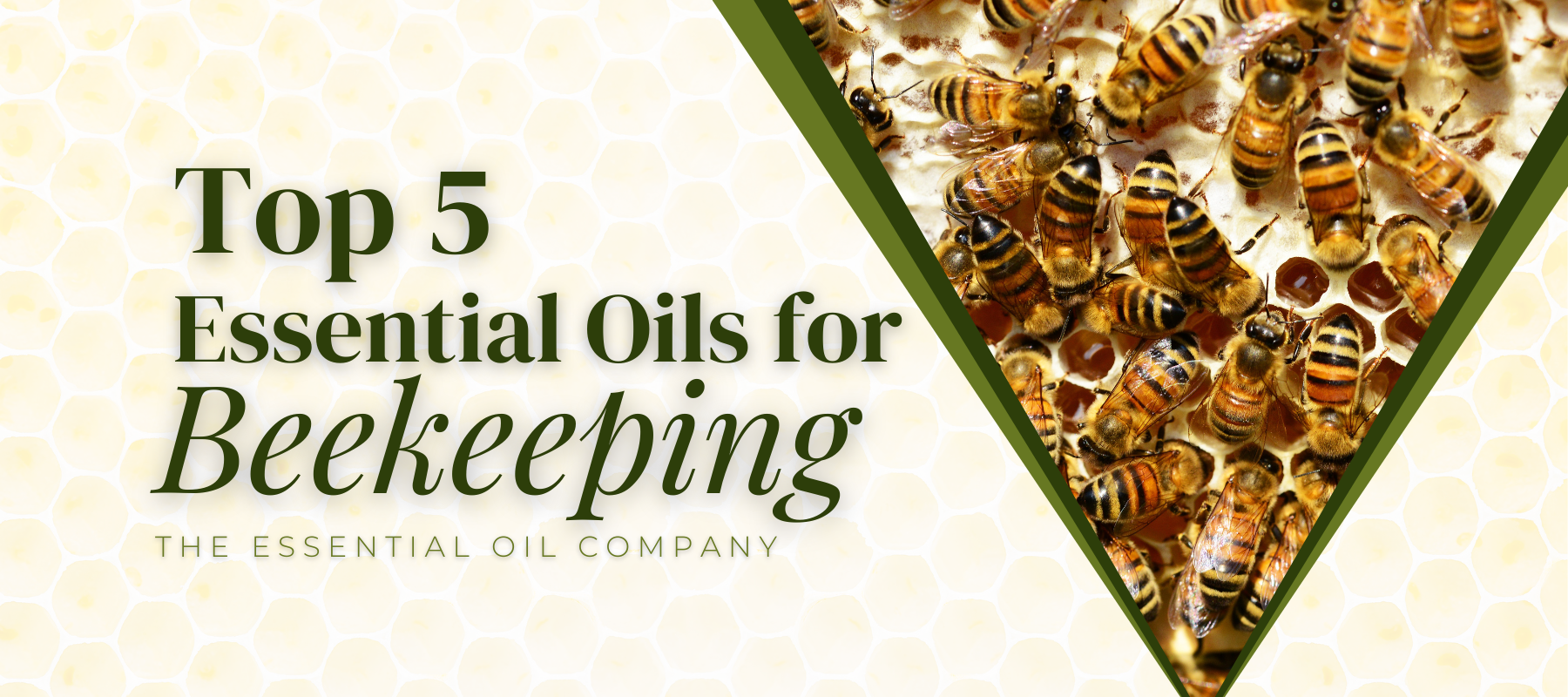
Top 5 Essential Oils for Beekeeping
Many beekeepers are interested in using as many natural products as possible with their colonies. Using essential oils gives beekeepers an alternative to applying manmade chemicals in their beehives but can also be used in combination or alternation with commercially made products. Here are five essential oils that beekeepers love.

Lemongrass Essential Oil is possibly the most versatile of the essential oils that are commonly used with honeybees. It is useful in the treatment of Varroa and Tracheal mites and as a preventative measure for Nosema disease in beehives. This is due to its anti-fungal and anti-viral properties that many beekeepers find effective. It can also be used as a nutritional supplement to improve overall hive health. Lemongrass oil mimics the attractant pheromone of honeybees making it an effective lure in swarm traps.
Thyme Essential Oil has properties that may help in controlling Varroa mites. It works by blocking pores on Varroa mites and causing confusion. The mites fall off bees and to the bottom of the hive. Use a screened bottom board when applying thyme oil to your beehive to allow mites to fall to the ground, making less hive-cleaning work for the honeybees. Thyme oil is also thought to combat fungus which may be helpful in preventing and controlling Chalkbrood disease.
Spearmint Essential Oil may assist in treating Varroa mites in a similar manner to thyme oil. It can also be used to mask other scents while not mimicking any of the honeybee’s own pheromones. Spearmint oil is often used in combination with lemongrass oil during feeding to help improve overall hive health.
Lavender Essential Oil is a great tool in beehives to help support a healthy colony. Lavender oil may also be effective against American Foulbrood Disease by working to help control the growth of bacteria and its spores within the hive.

Cornmint Essential Oil is another favorite for many beekeepers. It is known to be an effective deterrent for mites and other insects. Cornmint oil can also work to mask the natural scent of honeybees, helping to keep predatory insects away from vulnerable colonies.










Leave a comment